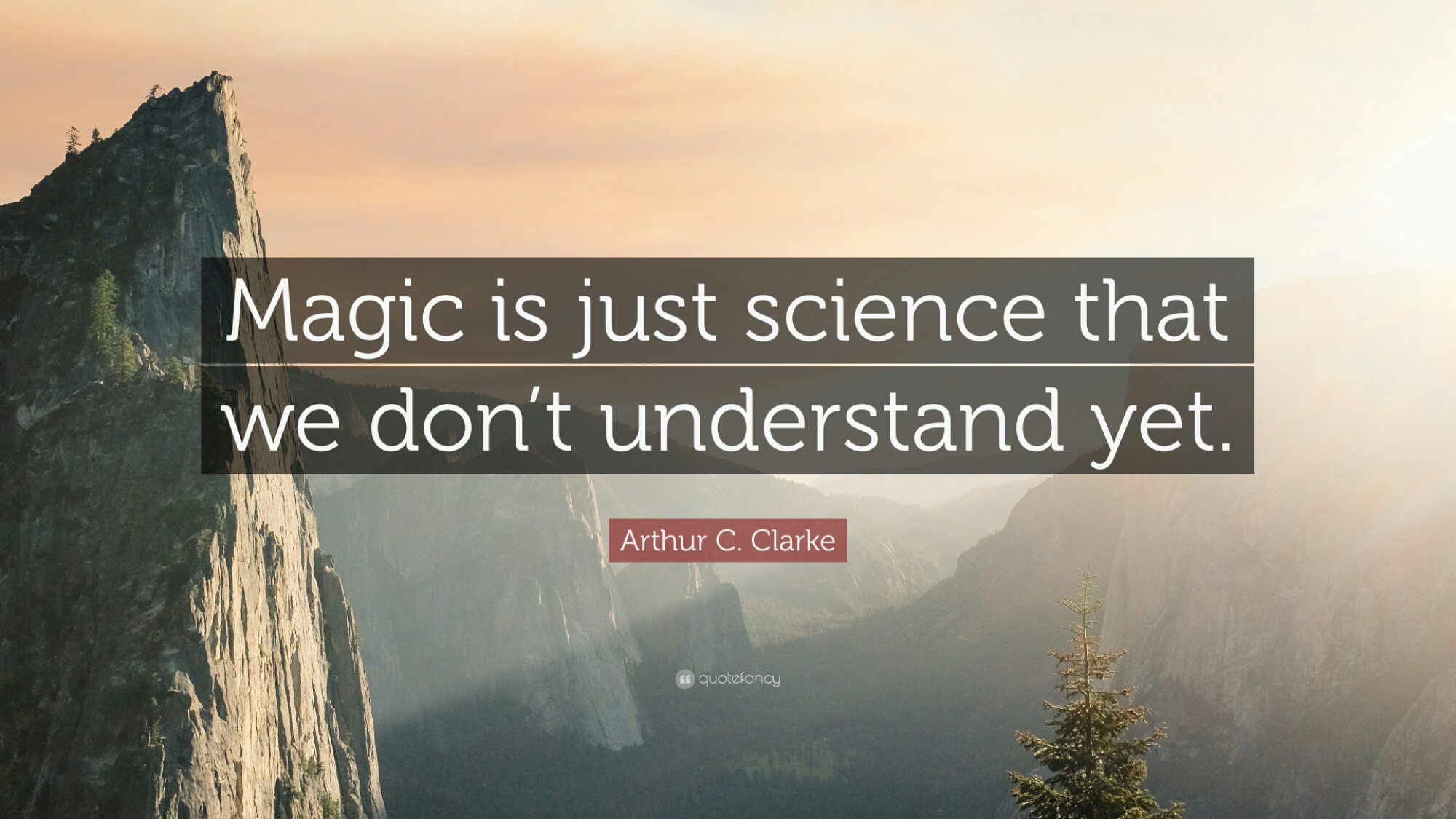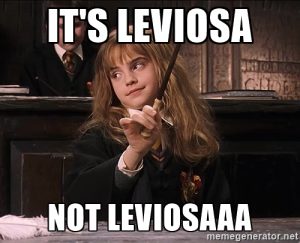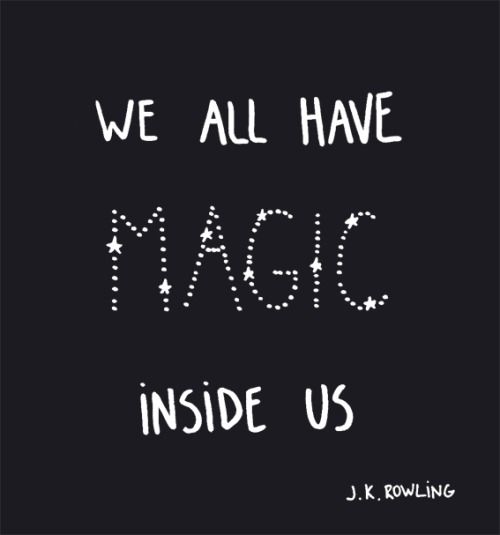“Magic is Chaos, Art and Science. It is a curse, a blessing, and a progression.” – Yennefer of Vengerberg
This post has been developed from the panel “Not just Hocus Pocus” at BristolCon 2016.
Why are we drawn to magic?
Fantasy books are hugely popular at the moment, but what is the appeal of magical societies in stories?
Magic is exciting. It represents something outside the norm that we can discover. Following a journey with a character who learns new abilities involves the thrill of discovery.
Magic fulfils our need to connect. Magic talents and powers may have ancient and primal roots. We can watch characters come to terms with their abilities and connect to something greater. They tap into a system that has meaning and gives them purpose – something we all crave.
Magic fulfils our childhood dreams. In childhood, anything seemed possible. The barrier between the fantastical and the mundane hadn’t yet fallen. Our daydreams and play revolved around wish fulfilment. Fantasy worlds can take us back to those carefree days.
Magic is control. Too often in real life, circumstances overcome us, and we are powerless to make change easily. Magical people exert control over aspects of their surroundings in a way that we wish we could. The fantasy of control is something we dream of in everyday life.
Can we mix magic and science?
Arguably, magic is a form of science. Magic is a power or force that we do not yet understand. In times past, natural phenomena were treated as if they were miraculous or had supernatural sources. Many years later, we learnt the scientific explanations behind these phenomena.
Even these days, we all use technology that we don’t fully understand. I’m writing this blog post on a computer. I know that my computer runs on electricity and puts zeros and ones together to do cool stuff. And I know that there are people out there who understand this! But to someone who has never seen a computer before, it may well appear to be a magic box.
Magic can be simply using natural or supernatural forces in a way that is not yet fully understood in our own mundane society. It’s possible to write magical laws and rules as if there is a scientific basis underlying them. For a magic system to be believable, it must have internal consistency, and this is the basis of science.
Fantasy is slowly moving away from its tried and tested medieval roots. Urban fantasy, where the real world meets the magical world, is very popular. Steampunk and associated genres such as gaslamp fantasy are growing, which have links to later historical periods such as the Victorian era. Magic is having to meld with technology and science in new ways.The challenge is to make the mixture feel like a natural progression from those early days of wizards and elves in the forests and fields.
How do we ensure magic serves the plot?
Magic can’t just be a free-for-all. Imagine a world where everyone had unlimited power. It wouldn’t last very long! And it would be dull to read about, because anyone being able to do anything removes the tension and challenge.
Magic needs rules. As mentioned above, magic need internal consistency. Magic should have defined rules, even if they are soft rules. Who can use it? How do their powers work? What results can they achieve? How can they learn to improve? These aspects must have the same answer each time magic is used to allow the reader to grasp the concepts and understand the use and potential of the magic.
If magic has rules, the concept of deus ex machina can be avoided. This is where a previously unknown power saves our characters from a sticky situation. The rules of magic should lead to foreshadowing later concepts as they are introduced.
Magic needs limits. Power cannot achieve everything or there is no battle to be fought. The extent of powers must be determined by their limiting factors.
Examples of how to limit magic are as follows:
- Intellectual capacity needed for learning is high, so magic takes years to master;
- Source of power runs out or needs to be recharged;
- Cost of magic is too great to use it too often;
- Laws of the land forbid use of certain magic, with consequences for doing so;
- Sense of personal duty compels a person to use magic for good.
The greater the power, the greater the price of using that magic should be, to create maximum tension.
Magic and the Real World
Societies where magic is out of reach of the everyday person, whether set on Earth, or in a fantasy world, are always popular. We like to imagine ourselves as part of the crowd who can see into the magical world. Any child who has waited for their letter from Hogwarts knows this feeling! Although, for me as a child, I would just check the back of the wardrobe to see if I could get to Narnia.
Having disparity between those who can access magic and those who cannot creates another form of tension in the magical world. Magic may then be used as a class symbol or a status symbol. Or, as is common in urban fantasy, it may be something that has to be kept hidden from the world.
This is another instance where the use of rules and limits on magic is essential, to prevent the everyday population from being oppressed by magic users.
Urban Fantasy is the genre where magic and modern society interact the most. In a way, this genre seems popular with adults because it brings back the childhood feelings of magic being just around the corner.
We enjoy the idea that lurking just out of reach is a magic doorway to another world, or Platform 9 3/4. Magic could exist alongside us, close enough to touch, without us ever realising.
The escapism of reading about magic almost within our grasp gives us a break from everyday life, something tantalising and exciting. It tells us we haven’t yet experienced everything the world has to offer, and tells us never to give up on our dreams.





Love it! 😀 Especially Hermione haha.
Pingback: Quick Links to my BristolCon posts | Magic Writer